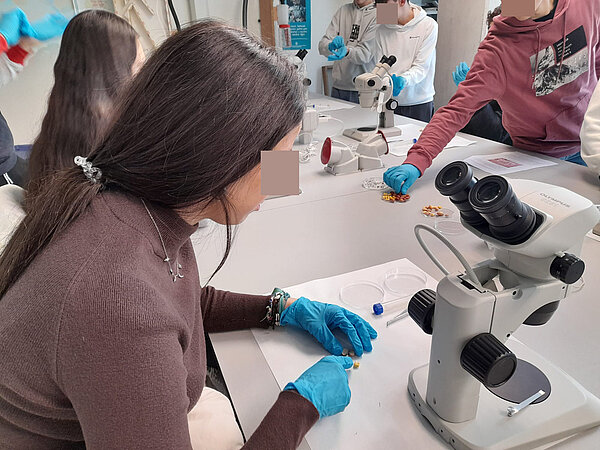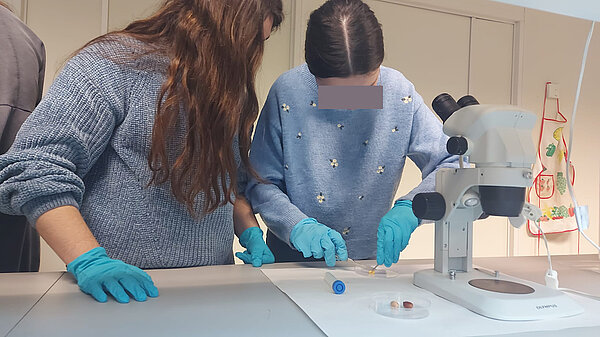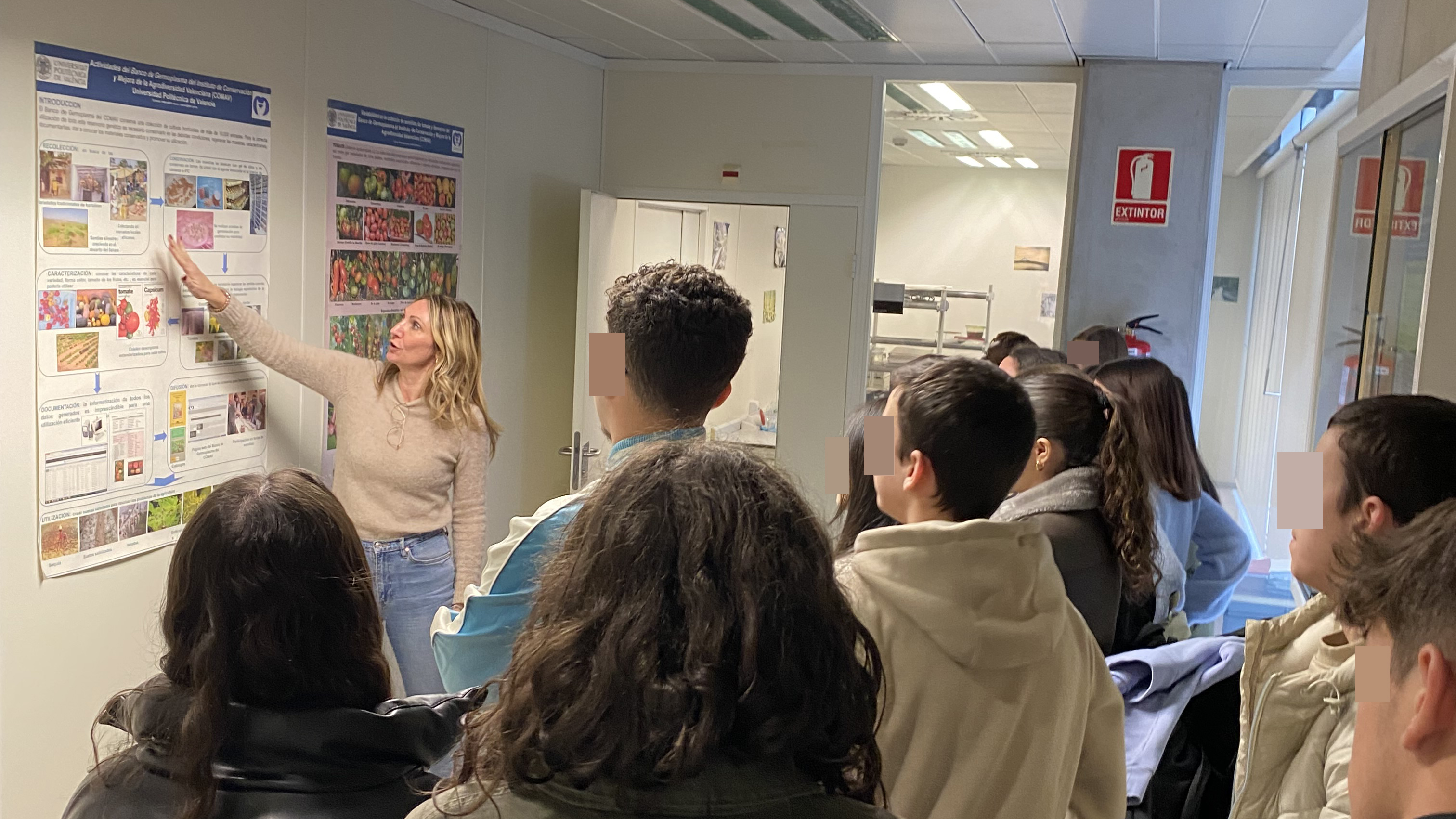Supported by the PRO-GRACE project, the Universidad Politécnica de Valencia (UPV) is providing secondary school students in Spain a unique opportunity to delve into the world of crop diversity, conservation practices and the scientific methods used to ensure the preservation of plant genetic resources in genebanks.
In a series of workshops organized by the UPV genebank in the context of their ScienceLab initiative, over 200 students aged 15-17 have learned how seeds are a reservoir of genetic diversity, crucial for plant breeding, disaster recovery, and adaptation to climate change.
This engaging educational activity includes several interactive segments:
Introduction
Students are informed of the importance of crop diversity, the relevance of genebanks in conserving it, how seeds can be conserved in the long term, and the main actions at the international level, including the PRO-GRACE project.
Conservation chambers visit
Students explore the conservation chambers of the UPV genebank, maintained at 4°C, where more than 30,000 glass jars with desiccated seeds of various horticultural crops are stored.

Recognition of seed viability using germination and staining techniques
- Germination test: Through hands-on activities, students learn about the germination process by placing seeds on moist cotton in Petri dishes, which they bring home to observe the emergence of radicles and cotyledons. This approach serves as a practical introduction to seed biology and the factors affecting germination.
- Tetrazolium staining test: Students are introduced to tetrazolium staining, a method for assessing seed viability by identifying living tissues based on enzyme activity. This segment allows students to conduct a scientific procedure, enhancing their understanding of seed health and viability.
Identification of seeds from different crops
In this activity, students engage in identifying and matching seeds to their corresponding crop photographs. This interactive exercise is designed to enhance their recognition skills and deepen their appreciation for the diversity of horticultural species.

María Luna Martínez, one of the participating students, said: "Attending the germplasm bank workshop opened my eyes to a whole new world I never knew existed. Learning about how seeds are preserved for the future and getting to actually see and touch them was amazing. It's not just about saving plants; it's about protecting our future food supply and biodiversity. I never realized how important this work was until now. This workshop was a real eye-opener for me, and it's something I think more students should experience."
Jaime Prohens, Director of the UPV genebank commented: "Hosting secondary school students for the germplasm bank workshop has been very rewarding. We have transmitted to them the crucial role of seed conservation, sparking curiosity in young minds about the importance of agricultural biodiversity. It's more than preservation; it's about empowering the new generation to protect our planet's genetic heritage. We look forward to seeing how these insights inspire our youngsters towards conservation of genetic resources for a sustainable future."
Nine workshops have been carried out since the beginning of 2023, and more are scheduled in spring 2024.
For more information on this activity, please visit the UPV website
